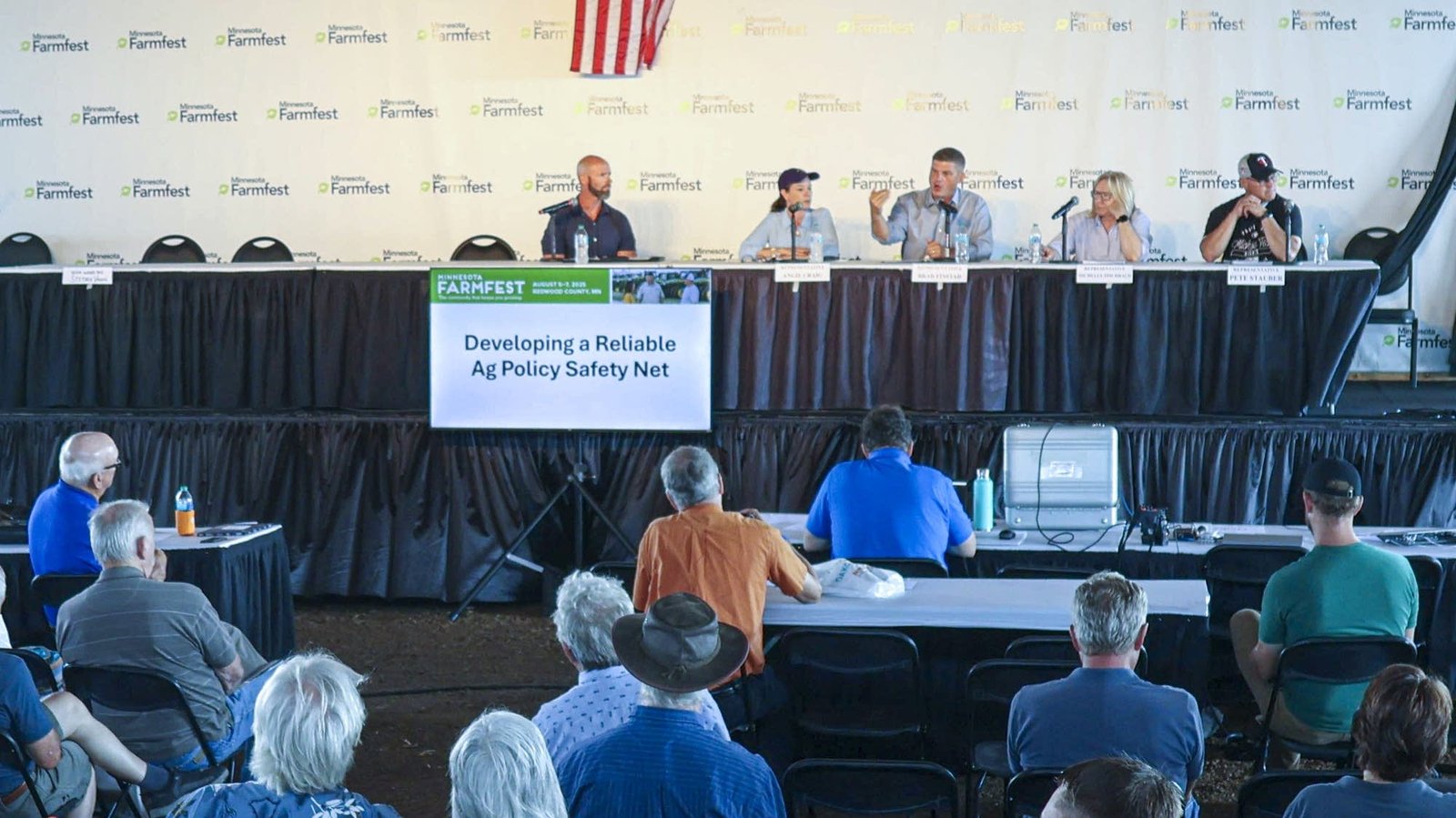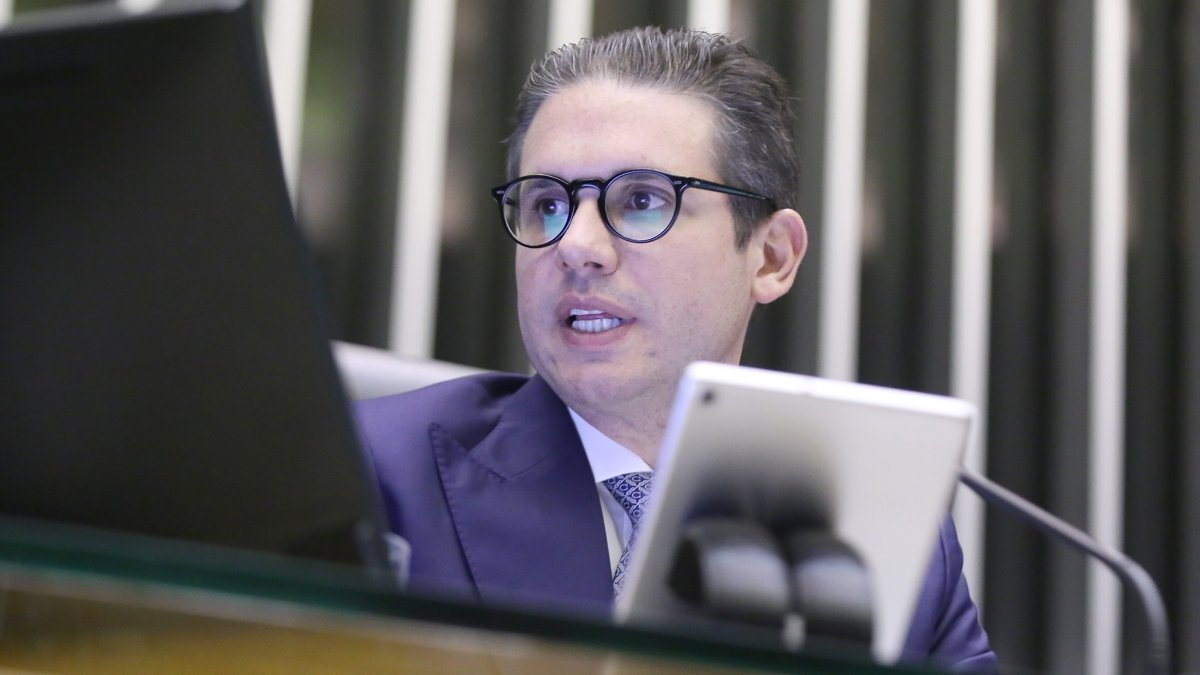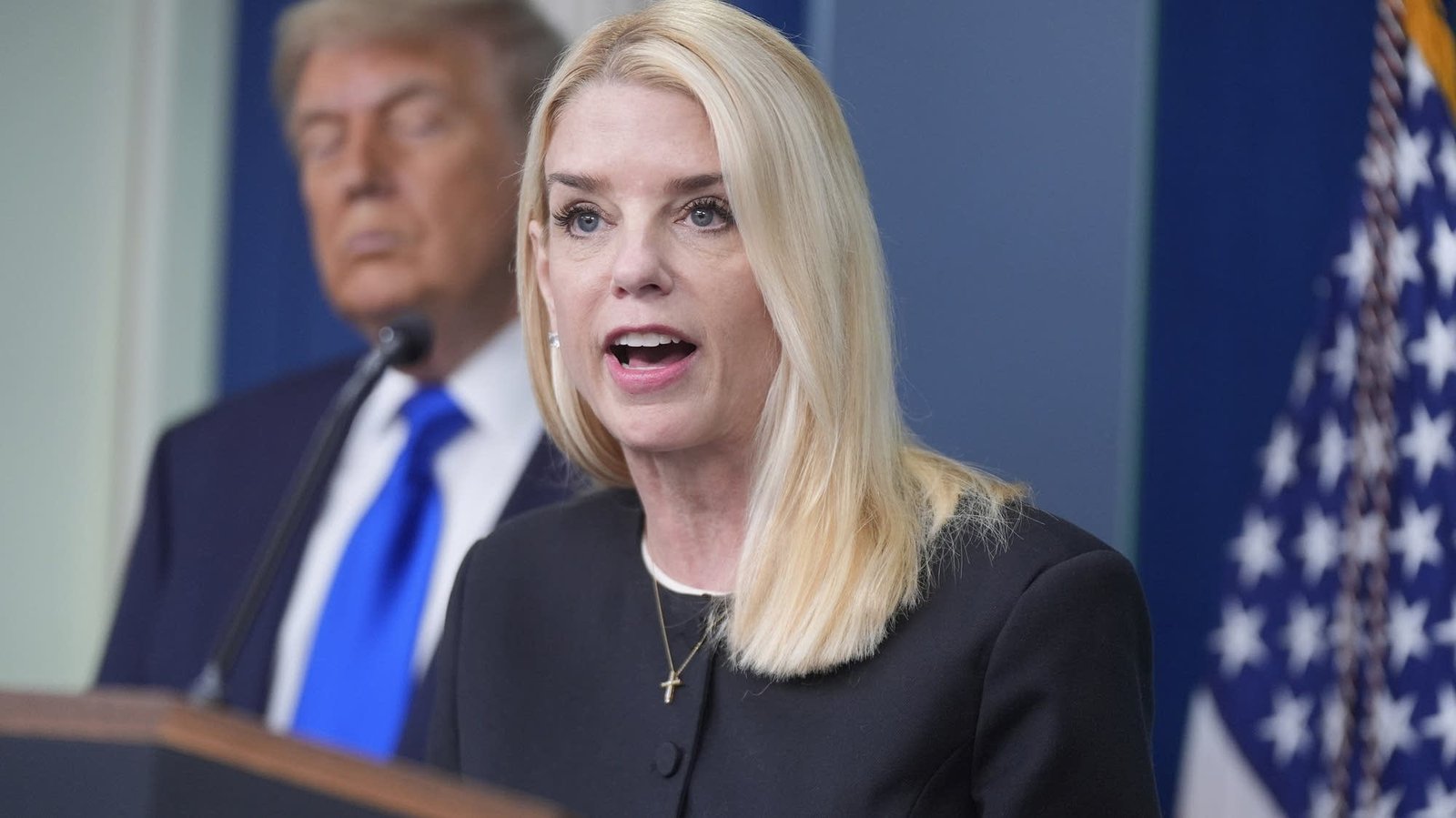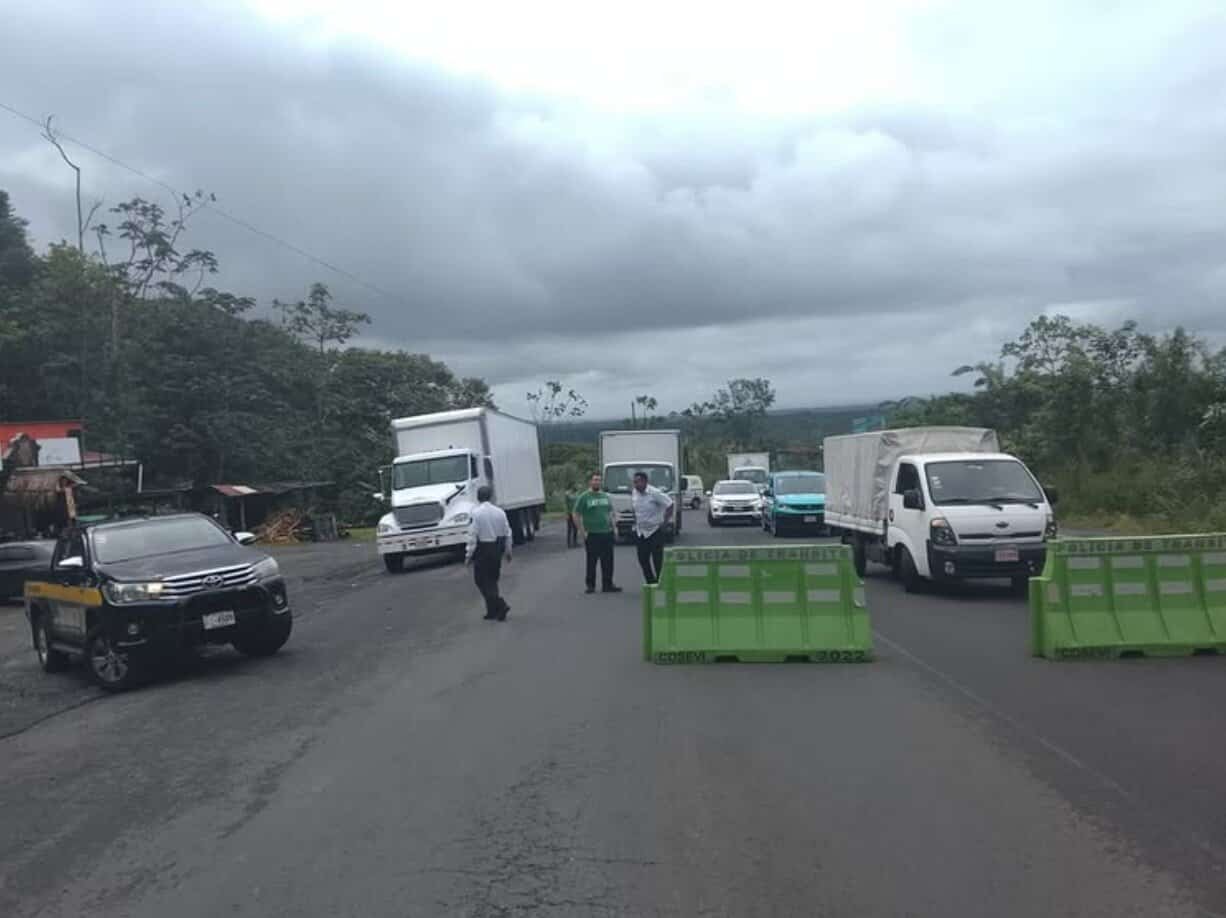Farming has never been easy, but this year seems especially challenging, with input costs rising, violent storms damaging crops and some commodity prices dropping. Those concerns took center stage at the annual Minnesota Farmfest, which is underway this week in the southern part of the state.
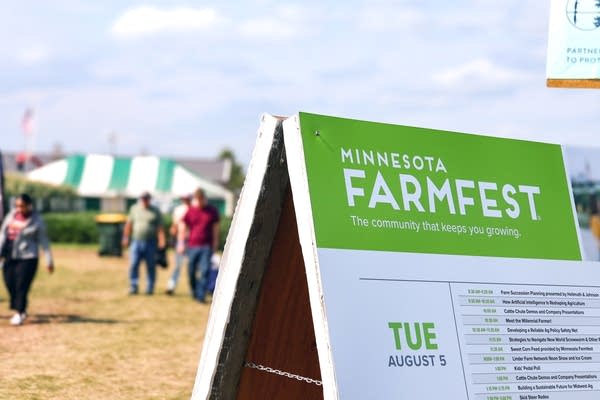
Hundreds of people strolled through an open field in rural Redwood County on opening day Tuesday, taking in the rows of new combines and tractors, patches of tall sunflowers, and tents with vendors showing off their latest agricultural tools and services.
There were even pens of livestock on display, including a small herd of hungry sheep grazing on sorghum.
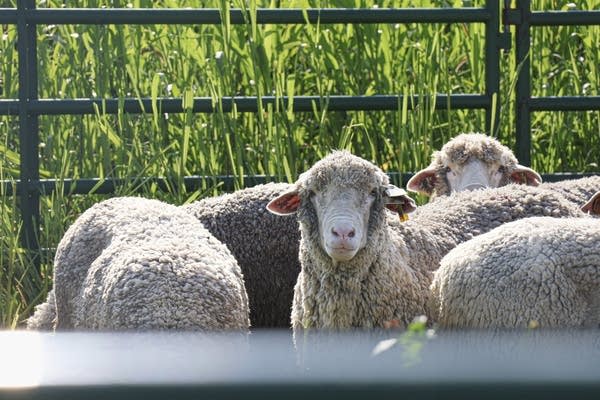
Over in a red, barn-like building, farmers, agri-business people and others took advantage of a rare opportunity to engage with top state and federal officials about ag policies.
It was the first of several Farmfest Forums on agricultural policies this week, this one was called “Developing a Reliable Ag Policy Safety Net,” to support farmers during times of economic uncertainty. It featured a panel of four of Minnesota's congressional representatives, who broke down several of the agricultural provisions in the reconciliation bill signed into law last month by President Trump.
Deputy U.S. Agriculture Secretary Stephen Vaden led things off by touting what he says are big wins for farmers in what Republicans call the “big beautiful bill,” including a long overdue increase in reference prices for crops.
“Thanks to Congress, those provisions now more closely reflect the cost that you have to pay everyday,” Vaden said. “Making the farm safety net, once again, something that you can feel underneath you and that will protect your operations for years to come.”
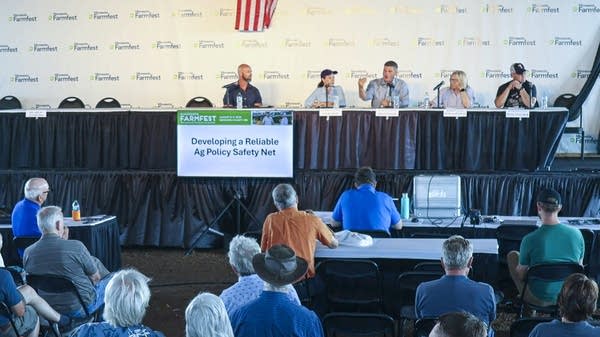
Vaden also addressed the Trump administration’s controversial trade war, which has effectively closed off several international markets, including China’s, to American grown corn, soybeans and other crops. Roughly about 30 percent of Minnesota’s agricultural exports are soybeans, and corn accounts for 14 percent, according to the Minnesota Department of Agriculture.
“I know there’s a lot of consternation and uncertainty,” Vaden said. “But one thing I can tell you, from the Whitten Building to here in Minnesota, is every interaction this administration has in negotiating a new trade deal is focused on what it can do for the American farmer,” as he contended that the president’s higher tariffs and brokering of new trade deals will ultimately benefit agricultural producers here.
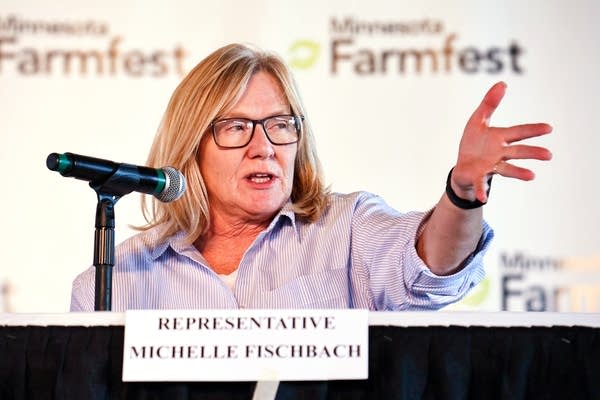
Republican 7th District U.S. Rep. Michelle Fischbach says hikes in funding for crop insurance, disaster relief, and increasing the estate tax exclusion are other big wins for farmers.
“The good in this bill is overwhelming because of the tax provision,” Fischbach said. “Because of the things that we've been able to do, not only for the ag community but for rural communities."
The lone Democrat on the panel, 2nd district U.S. Rep. Angie Craig, agreed that those bipartisan provisions are all worthwhile, but she criticized the $168 billion slashed from SNAP food aid—and a much bigger cut to medical care.
“When you cut Medicaid by a trillion dollars, in addition to that, you're principally hurting rural communities across our country,” Craig said, as many in the audience applauded. “And so that, that's going to hurt, it's going to hurt in the long run.”
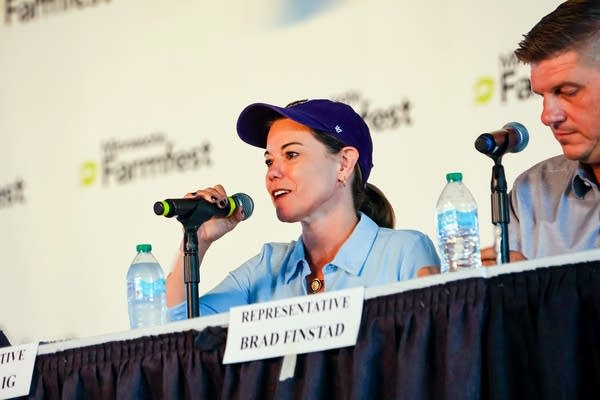
Small farmers’ voices ‘not being heard’
Outside of the forum, some of those attending Farm Fest who had steered clear of the public policy forum, said they don’t think their voices are being heard in Washington.
Bobby Paulson, 38, farms near the small town of White, South Dakota, says rising inflation and federal trade policies are forcing him to make big changes in his operation.
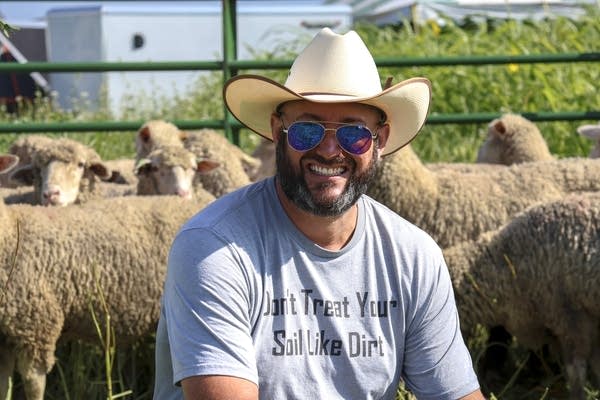
“Our family for the first time in 60 to 80 years, (is) not cropping our farm this year,” as he explained that they’re turned cropland into pastures for cattle to take advantage of rising beef prices, while prices for corn and soybeans, which he used to plant, are falling.
“We see the directions things are going,” Paulson said. “It’s not sustainable to continue this dependence on federal programs to produce corn and soybeans” when demand for beef is so strong.
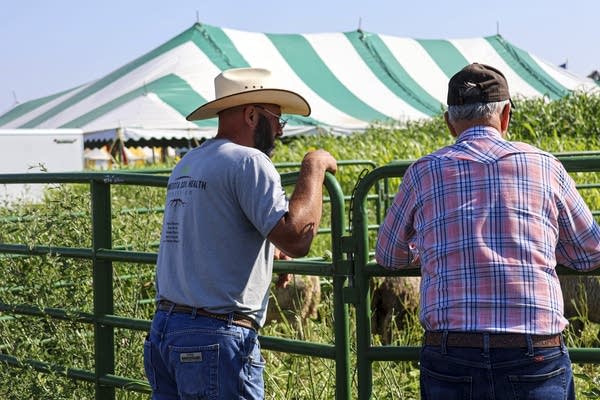
Others, too, aren’t happy with how their elected representatives approach ag policy. Mark Gutierrez, 40, of Albert Lea is a poultry and egg producer. Overall, he said he feels disappointed that Congress doesn’t represent farms like his.
Gutierrez added the majority of the focus has been on helping bigger growers of corn and soybeans, especially those who produce for the ethanol and biodiesel industries. He said small farms that grow or raise food products for food like his are being left behind.
“I don’t feel like in that sense, that our voices in agriculture are being heard,” Gutierrez said. “And, they’re definitely not being heard at the small farm level because we can’t afford… we don’t have lobbiers (sic). We don’t have large organizations going to bat for us.”


